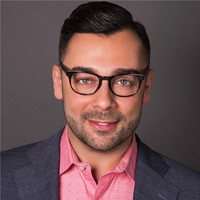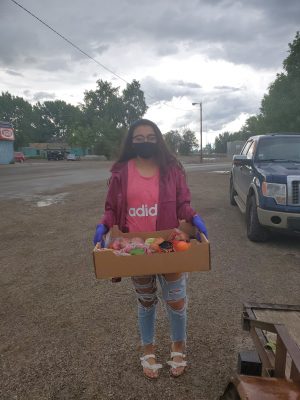Villanueva launches fund to aid Native American communities during pandemic
September 8, 2020

Edgar Villanueva
Edgar Villanueva, MHA, started the Decolonizing Wealth Project (DWP) to help funders give more equitably. The DWP’s Liberated Capital fund recently launched the Native American Community Response Fund, directing $2 million to help Native American communities recover from the COVID-19 pandemic, which affects them disproportionately.
After receiving a Bachelor of Science in public health in 2003 and a Master of Health Administration degree in 2005 from the Gillings School, he turned toward philanthropy and brings a deep focus on equity to the world of giving.
The DWP engages with funders through coaching and group discussions that ensure diverse voices are being brought to conversations about funding. The necessity of these conversations is underscored by the fact that less than 8% of philanthropic support is invested in communities of color. These conversations explore the basis for wealth, and they are predicated on the understanding that when philanthropy doesn’t intentionally seek equity, it ends up supporting structures that were built on injustice.
In addition to offering consulting for philanthropic organizations, DWP operates the Liberated Capital fund, which provides resources to Black, Indigenous and other communities of color. According to its website, the organization seeks to supply funding “through a reparations model that trusts and supports the leadership of those most impacted by historical and systemic racism.”

A woman carries food provided with help from the Native American Community Response Fund.
The Native American Community Response Fund is a vehicle of Liberated Capital that was established to provide rapid funding in response to the COVID-19 pandemic via nonprofits led by Native American people. These organizations provide support to alleviate food insecurity and inadequate access to housing and care for elderly members of the community who face financial hardship. The goal of these efforts is to serve populations that have disproportionately suffered hardships resulting from the pandemic through philanthropic mechanisms from which these same people have been disproportionately excluded.
Villanueva points out that the unemployment rate for Native American people was double that of the white population before the pandemic and sees every sign that the pandemic has widened this gap. He aims to ensure that Native people, especially older people, have safe, reliable shelter and access to healthy food. Support is channeled through national partner organizations — Native Americans in Philanthropy and the National Urban Indian Family Coalition — that already have roots in the community and, he notes, “achieve great impacts on shoestring budgets.”
As well as writing the award-winning book Decolonizing Wealth: Indigenous Wisdom to Heal Divides and Restore Balance, Villanueva serves on the board of the Andrus Family Fund and as chair of the board of directors of Native Americans in Philanthropy and NDN Collective.
He says the drive that pushed him to start and support ventures that work to address inequity through philanthropy was honed at the Gillings School.
“My time at Gillings provided a foundational understanding of the social determinants of health and underscored the significance of race and place,” said Villanueva. “It also provided a supportive network of relationships to do this work and helped me land my first job in philanthropy at the Kate B. Reynolds Charitable Trust in Winston-Salem, North Carolina.”
When talking about the DWP and Liberated Capital, he asserts that work to address inequality stands to benefit all of society.
“It’s not about charity; it’s about solidarity,” he shared. “Native communities offer solutions to society’s most pressing problems. In order to heal, we must practice radical solidarity and understand that all of our suffering and thriving are mutual.”
Contact the UNC Gillings School of Global Public Health communications team at sphcomms@unc.edu.
